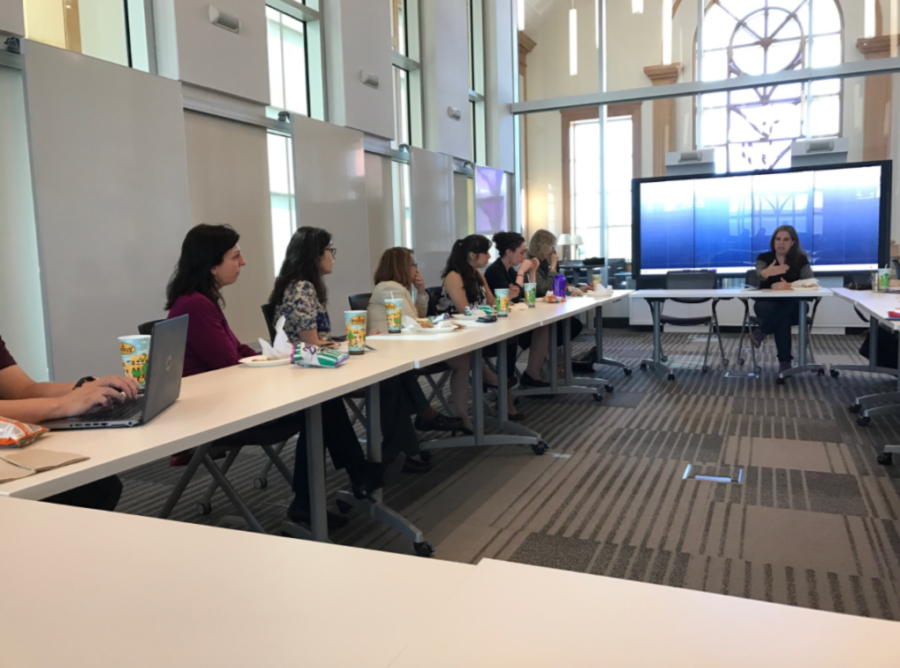As one of the newest additions to minors, the Middle East studies department is engaging in discussions about problems faced in the Middle East and all over the world. The Middle East studies and Women and Gender studies departments partnered with Discovering Global Citizenship to bring speaker, Liat Kozma to discuss love, sex and hate in the Middle East. The author and tenured professor from the Hebrew University of Jerusalem spoke to a small group of undergraduate and graduate students from the WGST and Middle East studies programs on Wednesday. Kozma’s studies and the topic of her books are primarily focused on prostitution and the trafficking of women. She spoke of the injustices many women have faced and continue to face in the Middle East. These traditions were not originated in the Middle East but have persisted over many years. Prostitution and the trafficking of women became very prominent in the 20s, so much so it was addressed by the League of Nations after World War I. While the problems were addressed by the League of Nations, the group seemed much less concerned with women of color. “It was very obvious they were only concerned with white women,” said Kozma. “If a white woman from Russia was being trafficked, it was a much bigger situation.” Even today, women in the Middle East are at risk of becoming prostitutes or child brides. “Many Egyptian men marry after having experiences with prostitutes and they marry young virgin women who have to be fine with it,” said Kozma. Kozma was recently awarded a grant from the European Research Council. She plans to continue her studies on women’s role in the Middle East, this time focusing on how medicine and disease can move from country to country and affect women. She is currently looking for fellows to join her research, preferably “horned frogs fluent in Arabic.”




